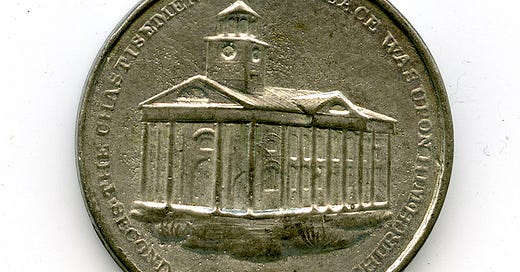Leaving Our Offerings Before the Altar
Therefore if you are presenting your offering at the altar, and there remember that your brother has something against you, leave your offering there before the altar and go; first be reconciled to your brother, and then come and present your offering.
Matthew 5:23–24
"Therefore if you take the emblems of the communion in your hand, and then remember that your brother has something against you, leave the emblems at the table and go; first be reconciled to your brother, and then come and take communion."
If a minsiter said that in our churches today, how long would it take for him to be shown the door? Yet, this is the gist of what Jesus was teaching here. In the book of Leviticus, there were five offerings listed in the first seven chapters. These offerings could be made for guilt, sin, or simply out of thankfulness to God. Their place at the beginning of Leviticus shows their centrality to the covenant between Israel and God, but the purpose of these offerings were not the sacrifices themselves. Instead, they taught Israel how to settle differences, how to make things right, and how to know they were okay in God's eyes.
Jesus's point in Matthew 5 is we tend to place more emphasis on the ritual than the meaning behind the ritual. What good is baptism if nothing about a person's life changes? What good is communion without community?
Is not the cup of blessing which we bless a sharing in the blood of Christ? Is not the bread which we break a sharing in the body of Christ? Since there is one bread, we who are many are one body; for we all partake of the one bread.
1 Corinthians 10:16–17
What right do we have to take communion if the body of Christ is divided or, as Jesus said, we remember our brother has something against us?
Paul made a similar argument in 1 Corinthians 11.
For, in the first place, when you come together as a church, I hear that divisions exist among you; and in part I believe it.
1 Corinthians 11:18
The communion was meant to be a time of community, of gathering around the table together. It was an opportunity for those who had to share with those who had not. It was a time when the first was made last and the last first. Both Paul and James, in his second chapter, chastised those who would dare gather around the table unequally.
One reason why this is so important and why communion is a central part of our time together is what we do while we are together as a congregation influences how we treat the world. If there are divisions among us because of race, income, or whatever, then those differences will show up in interacting with members of the community. In other words, if we can't love each other, how can we be expected to show love to the world?
Alexander Campbell understood this. Leroy Garrett offered some thoughts about his trip to Scottland and made this insightful comment about Campbell's life:

And it was in Glasgow that Campbell finally refused to break bread with the Seceders (a group of minsisters and members who had left the Church of Scotland in 1733 - DR) in that it was restricted only to themselves, excluding even other Presbytyrians. His biographer, Robert Richardson, says that when Alexander dropped his token in the plate, which allowed him to the table, and walked out without partaking, that was the beginning of the Reformation Movement.
Restoration Review: The Word Abused – Vol. 17: No. 2 – “Our Heritage from Scotland” p.32
When we take communion seriously, it can spark big changes in our congregation and community. It is more than just a ritual we go through on Sundays, it is a commitment to God and to our church family. May we be willing to be bold enough to leave behind our offering and reconcile with our brethren when the challenge arises.



